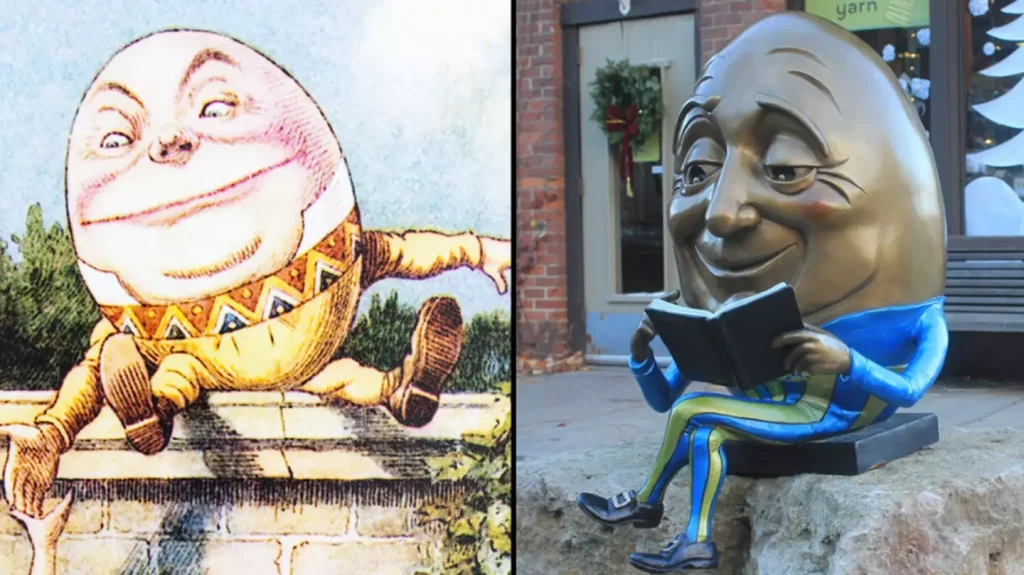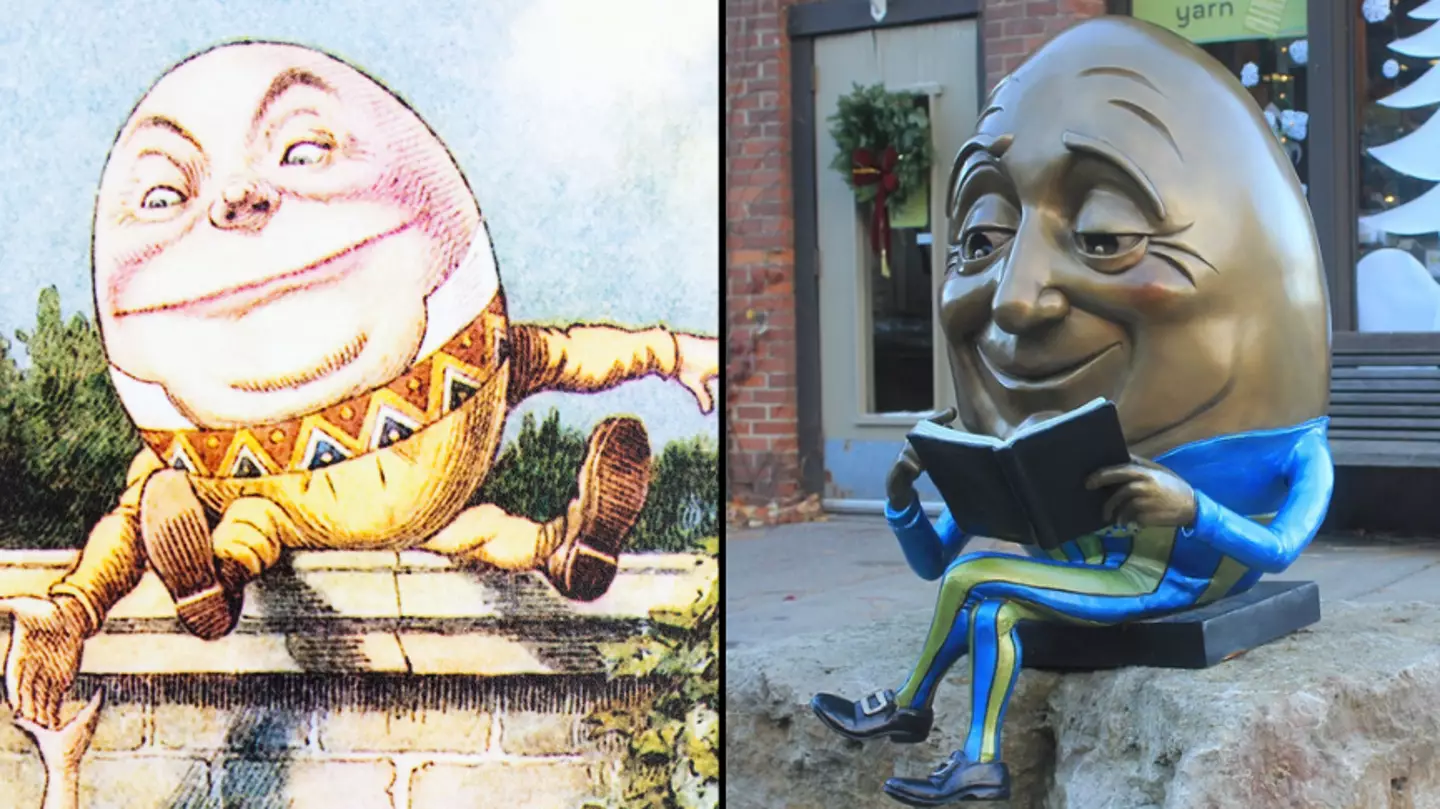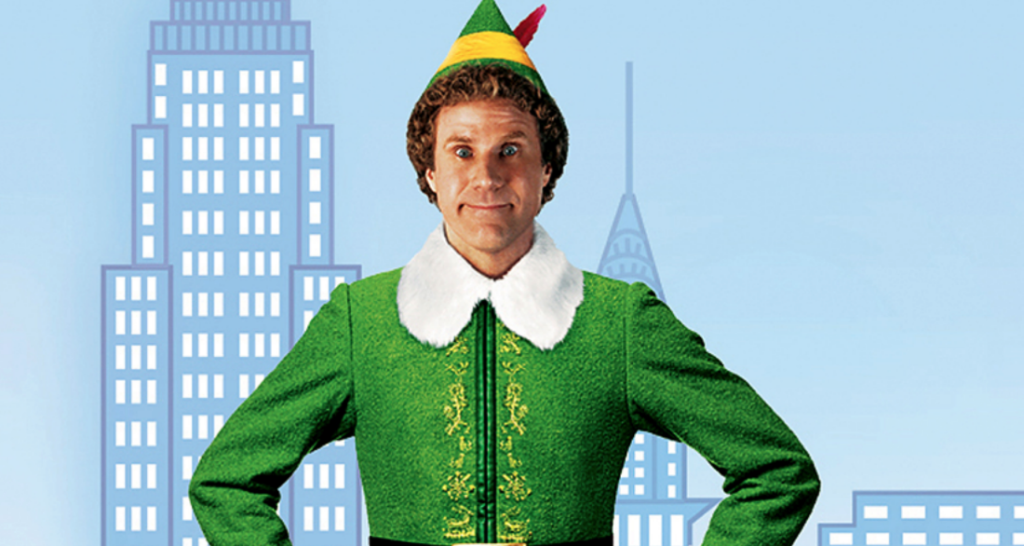Did you know Humpty Dumpty’s true identity?
Watch Our Video Of The Week
The children’s nursery rhyme “Humpty Dumpty” is one that almost everyone is familiar with because it is the kind of music that we all hear when we are younger.
But just in case you forgot, the tune goes: “Humpty Dumpty sat on a wall, Humpty Dumpty had a great fall, all the King’s horses and all the King’s men couldn’t put Humpty together again.”
Since Humpty Dumpty is an egg right? You’re probably envisioning a huge egg-man thing falling off the wall and breaking, just like the rest of us. Nope.
Although Humpty Dumpty is never described as being an egg in the nursery rhyme, we can explain how that image came to be.
When it was revealed that the nursery rhyme is entirely unrelated to eggs, people were somewhat astonished.
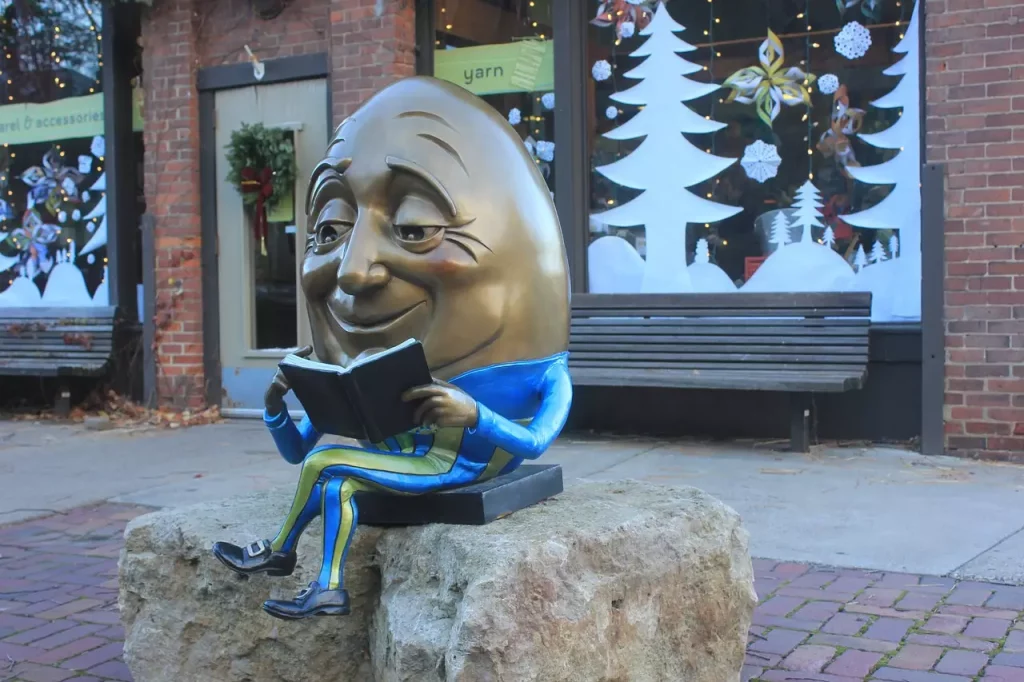
A person said that learning that Humpty Dumpty wasn’t an egg “f**ked me up,” and another claimed it “blew my MIND.”
Others noted the inherent absurdity of horses being tasked with aiding in the reconstruction of Humpty because they are notoriously terrible at rendering medical care or constructing things.
Since the nursery rhyme just tells us that Humpty Dumpty was something that fell off a wall, there are some hypotheses as to who or what Humpty Dumpty was originally meant to be.
Why an egg though?
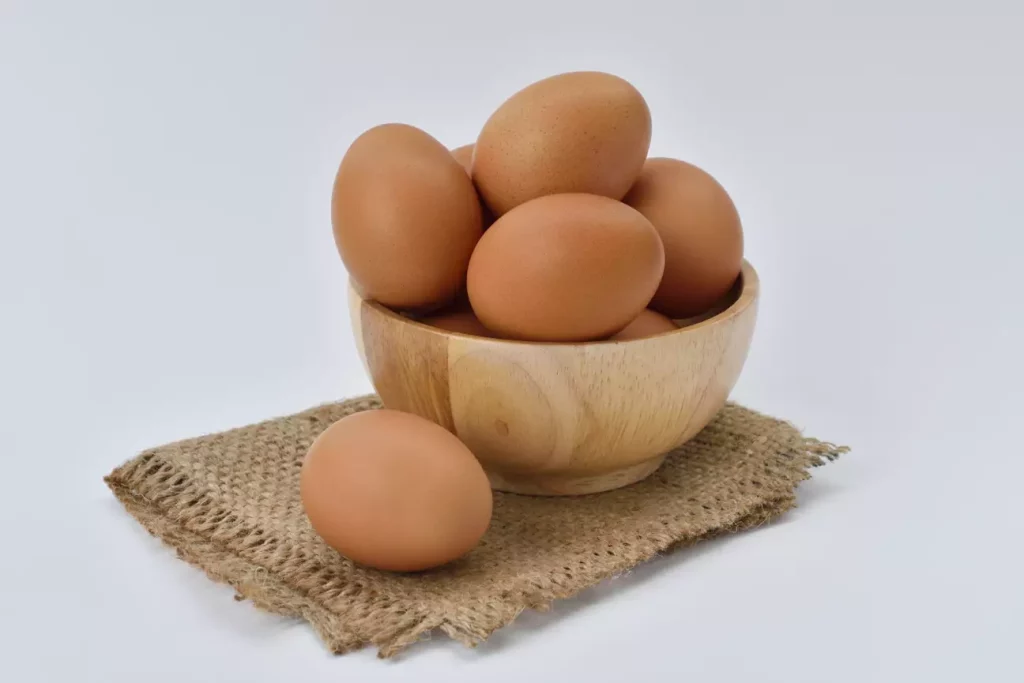
That happened when the illustrator for Lewis Carroll’s Through the Looking Glass in 1871 chose to picture Humpty Dumpty as an egg, and the image has persisted ever since.
Kids are familiar to eggs being cracked, therefore it is far preferable to envisage Humpty Dumpty as a kind of anthropomorphized egg creature rather than traumatising them with a representation of someone or anything terribly disfigured by a bad fall.
Some believe King Richard III, the last of the Plantagenet kings of England, was the inspiration for Humpty Dumpty. Wall, a ludicrous name for a horse, is said to have belonged to the last of the Plantagenet rulers.
And as if Richard III’s day wasn’t horrible enough, he was buried in Leicester under a parking lot. Richard III was hacked to death during the Battle of Bosworth Field and may have fallen off his horse during the fighting.
That is one theory; another is that all of his horses and men were unable to piece him back together after he suffered a serious fall off ‘Wall’ the horse.
Another theory is that Humpty Dumpty was a cavalry cannon that was mounted on Colchester’s city walls during the English Civil War.
The cannon fell and sustained such extensive damage that it was rendered worthless as a weapon while the Roundheads blasted the walls to shreds.
Woman Ended Up With A Baby Sister After Destroying Parents’ Condoms
‘It’s Raining, It’s Pouring’ Nursery Rhyme Has Dark Meaning Which Has Left People ‘Traumatised’
The dark meaning behind the nursery rhyme ‘It’s Raining It’s Pouring’ is ruining peoples’ childhoods.
Everyone is familiar with the tune we heard and sang countless times when we were younger.
While we always thought it was a pleasant song, it turns out it is actually much darker.
A woman has dissected the lyrics’ ominous undertones in a post on TikTok under the handle @stupidlittlegenius.
“Everyone knows this one, but do you know what it means?” she asks.
The TikToker then begins singing the familiar tune: “It’s raining, it’s pouring, the old man is snoring, he went to bed and bumped his head and couldn’t get up in the morning.”
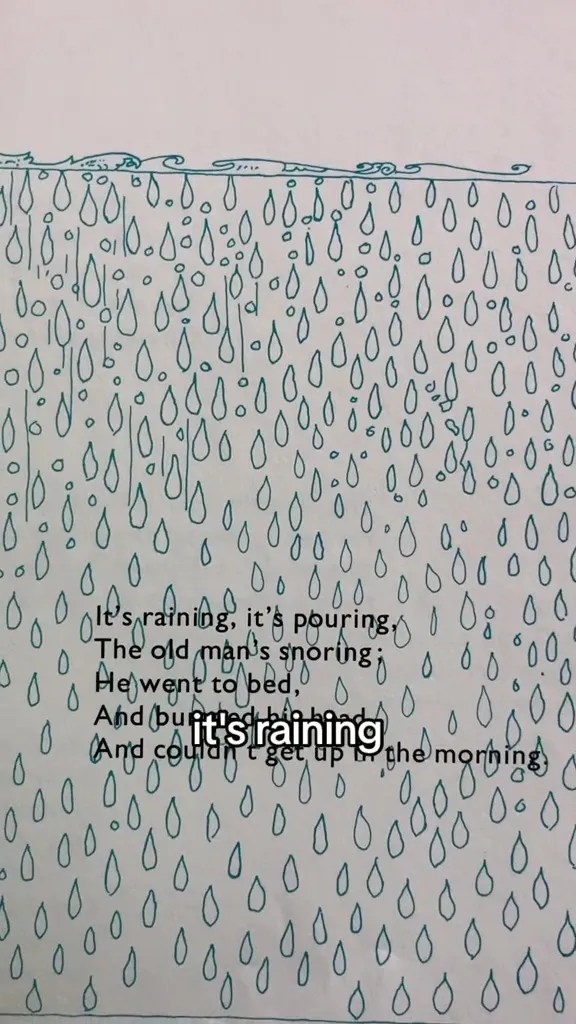
The TikToker says how that even though it doesn’t describe anyone in particular, the nursery rhyme is a ‘cautionary tale’.
Despite the rhyme describing a downpour, surprisingly she reveals that it actually has nothing to do with the rain.
“In actual fact, the old man liked a good drink and ‘it’s raining and pouring’ refers to the alcoholic drinks being poured very liberally – like it’s raining cocktails and shots,” the woman explains.
She then confirms that the rhyme is actually about a man who has had a few too many to drink.
“After drinking so much that he couldn’t stay awake, he started nodding off and snoring,” she continues.
“So he decided ‘it’s time to sleep it off’. But by this point, he was so inebriated he probably couldn’t even walk in a straight line.
“So when he went to bed he stumbled, fell or otherwise drunkenly bumped his head.
“And that must’ve been some bump because he couldn’t get up in the morning.”

While you’d suspect that the reason he couldn’t get up in the morning was due to a rough hangover. However, it is actually a much more depressing reason.
“Well, he was dead,” the woman concludes.
“That’s right, most experts agree that the man never got up again because he suffered from a major head trauma.” Viewers have taken to the comments to react to the dark meaning.
One person says: “My childhood is officially ruined.”
Another user questions: “Why did my two-year-old self have to sing these nursery rhymes.” “I’m going to pretend this is about the weather,” a third comments.
My First Vape Toy
Incy Wincy Spider Nursery Rhyme Has A Dark Meaning That’s Not Kid-Friendly At All
The nursery rhyme “Incy Wincy Spider” contains a sinister undertone that is not appropriate for children at all.
Most of us have realised as we’ve become older that some of our favourite rhymes from childhood are actually quite nasty.
Whereas “Ring Around the Rosie” is about the thousands of individuals who died during the Great Plague of London in 1665, “Rain Rain Go Away” closes with the elderly man passing away.
People are now learning the sinister meaning behind another well-known nursery song.
For those who need reminding of how ‘Incy Wincy Spider’ goes, it is: “Incy Wincy Spider climbed up the water spout, down came the rain, and washed the spider out.
“Out came the sun, and dried up all the rain, and Incy Wincy Spider went up the spout again.”
The nursery rhyme, however, is actually based on a very ominous hymn from just after the American Civil War.

The music of this song, “Tipsy Dipsy Hobo,” is reminiscent of “Incy Wincy Spider.”
The song goes along the lines of: “The Tipsy Dipsy Hobo drinks from the lager spout, here comes the train it knocks the hobo out.
“Out comes a man to pick up all the brains, but a Tipsy Dipsy Hobo drinks from the spout again.”
The history of this song dates back to a time when trains were gaining popularity and the poor tried to jump onto them as they moved to get around, usually while intoxicated.
The lyrics have been further broken down by TikTok user @my_man_jackie.
He explains: “It turns out that the ‘Itsy Bitsy Spider’ is an incredibly dark metaphor for alcoholism.
“When it talks about crawling up the water spout, it talks about the fact the man starts drinking.
“And when it talks about down comes the rain and it washed the spider out, it means he drunk too much and it’s finished him off.”
He ended his video by adding that the song originates from ‘Tipsy Dipsy Hobo’ before claiming it became a nursery rhyme to stop children from drinking.
People have taken to social media to discuss the meaning behind ‘Incy Wincy Spider’, along with other nursery rhymes.
One person says: “I thought it was a metaphor.
“The spider being the lower class striving to climb the social ladder.
“The rain being the upper class. And the sun being hope.”
A second user adds: “Most nursery rhymes are dark and have a different meaning.”
It turns out that this seemingly innocent nursery rhyme has a considerably deeper connotation than you might have thought.
Having said that, it appears that the most well-known tunes we would sing as kids have a sinister history.
